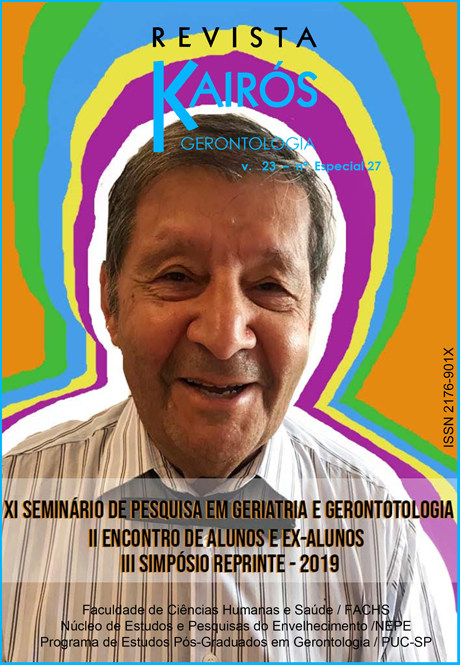Pesquisa PROCAD - padrões de envelhecimento e longevidade: aspectos biológicos, educacionais e psicossociais de idosos institucionalizados
DOI :
https://doi.org/10.23925/2176-901X.2020v23i0p97-104Mots-clés :
Institucionalização, Idosos, Avaliação em saúde.Résumé
O comprometimento cognitivo e funcional, dentre outros são fatores que contribuem para a institucionalização da pessoa idosa. Objetivou-se comparar amostras de idosos com 60 e mais anos, residentes em instituições de longa permanência, com relação a sexo, idade, renda, condições de saúde física, fragilidade, sintomas depressivos, cognição, e identificar relações entre essas variáveis. Estudo transversal realizado com 479 idosos. A maioria são mulheres, longevas, com declínio cognitivo, dependência para atividades básicas da vida diária, alta prevalência de sarcopenia e síndrome da fragilidade.
Téléchargements
Publié-e
2020-09-30
Comment citer
Portella, M. R. (2020). Pesquisa PROCAD - padrões de envelhecimento e longevidade: aspectos biológicos, educacionais e psicossociais de idosos institucionalizados. Revista Kairós-Gerontologia, 23, 97–104. https://doi.org/10.23925/2176-901X.2020v23i0p97-104
Numéro
Rubrique
Artigos


